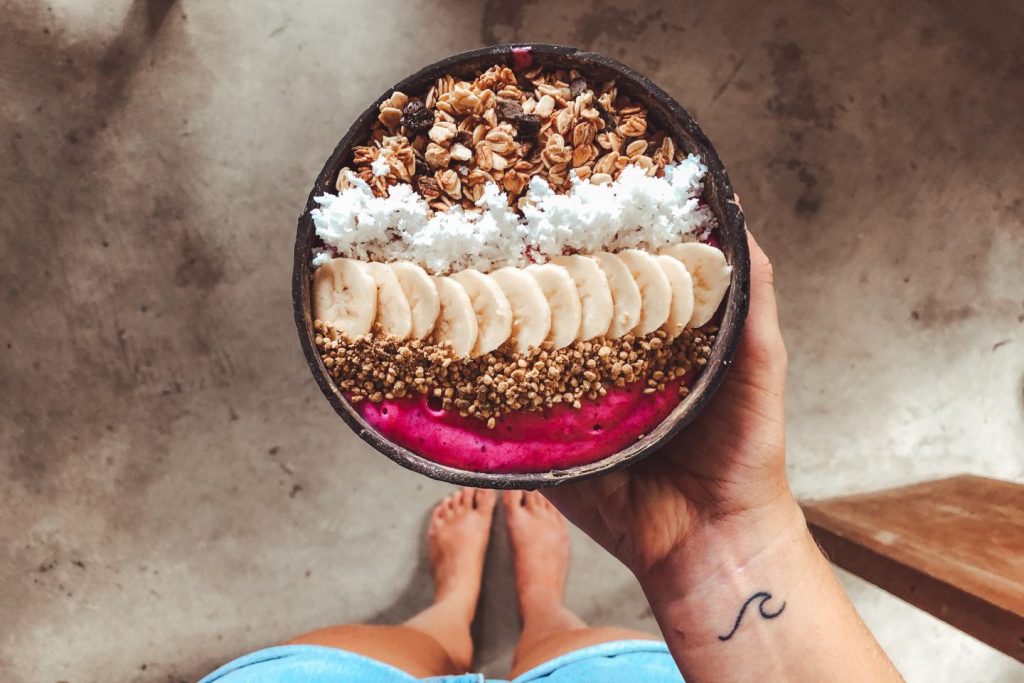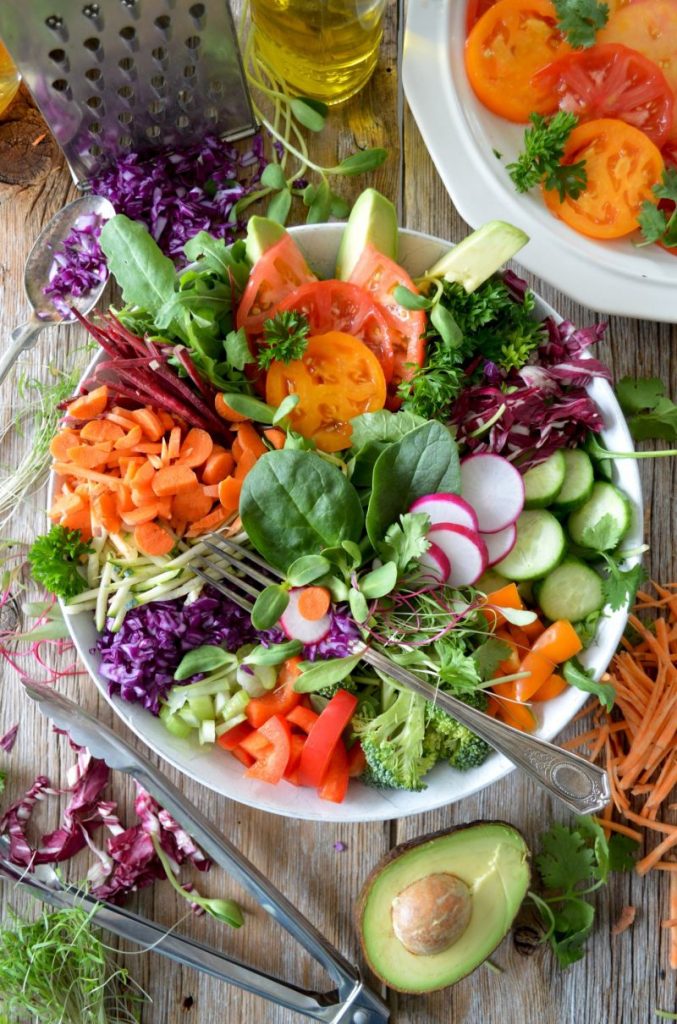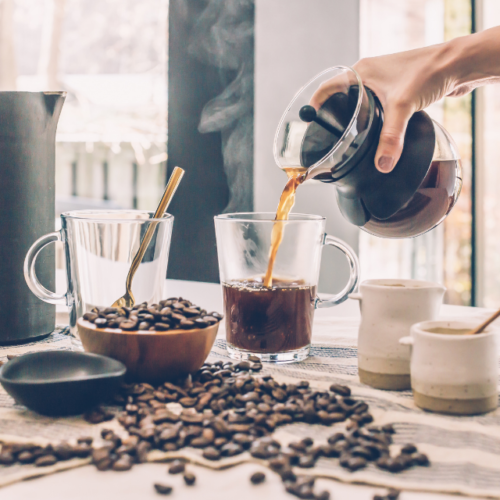Our mental and physical well-being directly depends on what we eat, which is pretty much a cold, hard fact. If you are not eating well, it doesn’t matter how much you work hard. Ultimately, you will never achieve your fitness goals if you focus only on physical activity, yet don’t pay attention to your diet and nutrition. When we neglect our diets, it can result in several types of chronic diseases and other health-related problems, which we don’t want to be getting!
We all know that eating a balanced diet is necessary for good physiological and psychological health.We have this drummed into us from being young, as our body needs specific nutrients to be healthy and more active. Being a part of the body, our brain also requires some important chemicals to function properly, too.
Here is the list of foods that will help you achieve your health goals, especially when combined with fitness and and a healthy mindset too…
Rice:
Rice is the best food to eat if you are in the process of gaining weight. It can provide you 190 calories of food energy with just 165 grams of serving. In addition to this, it also gives you 43 grams of carbs and a small amount of fat. You can obtain a high amount of carbs and calories from rice, which fills you up fairly quickly because of its calorie-dense quality. Moreover, if you have a poor appetite, rice helps you to eat more as it makes a great side dish with meats, vegetables and more ‘bulkier’ foods, like curries or chilli con carne.
Rice is also a rich source of fiber. Fiber can help lower cholesterol levels and reduce the risk of heart disease and strokes. As just mentioned, it also makes you feel full more quickly, therefore you may find it easier to maintain a healthy weight as you’ll tend not to snack after it. Furthermore, brown rice consists of vitamins and minerals that help transmit blood and perform other vital functions, so if you can, opt for this if it’s an option.

Milk:
Milk is an essential diet for strong bones, teeth, muscles, and nerve signals because of its calcium-rich quality. It will work more effectively if you drink it right after breakfast. Although even if you develop the habit of drinking it before going to sleep, it’ll work wonders, not forgetting it’s ability to aid a peaceful nights sleep!
Milk is a complete and planned food that can keep you full and curb your cravings, which is why many people are advised to have a glass along with a small snack during the day. You can get the following benefits by drinking milk regularly:
● It’s good for bones.
● Lowers the risk of obesity.
● Prevents heartburns.
● Fights multiple diseases.
● Stress buster.
● Rich source of protein.
You can get a high balance of carbs, fats, and protein with the consumption of milk. It is rich in vitamins A, B6, C, K, E, and D. Milk also contains folates, biotin, niacin, and other minerals that help your bones to get stronger. Regular intake of milk will help you keep yourself in healthy shape as it’s far better than reaching for a sugary drink, and can fill you up quite quickly alongside a small snack too.
Cheese:
Cheese is a rich source of fat, protein, and calcium. It also contains a high amount of vitamins A, B12, zinc, riboflavin, and phosphorus. You can get 7 grams of protein and 202 milligrams of calcium with just a 28-gram serving of cheese, and although many of us fear it due to containing fat, when eaten in moderation it’s actually really good for you.
Furthermore, you can combine cheese with many dishes to add useful calories to your diet, like pasta sauces, sandwiches and salads. Some food experts say that the combined intake of cheese and White Thai Kratom can be beneficial if you are struggling with stress, too.
Types of cheese with high-fat such as blue, brie, and cheddar cheese contain a small amount of CLA (conjugated linoleic acid). According to studies, CLA may help to decrease the risk of heart disease, obesity, and inflammation. It may also have a clear positive effect on cardiovascular health.
Eggs:
Eggs are rich are a source of inexpensive, high-quality protein. The protein of an egg is found in the white part of the egg, which also includes vitamin B2 and a low amount of fat. Eggs also contain vitamin D, selenium, B12, B6. Along with that, it consists of minerals such as zinc, iron, and copper.
Studies reveal that regular intake of eggs will result in better performance of memory. Furthermore, because of choline’s presence in it, your brain will get help to make acetylcholine from it. This is a neurotransmitter that is necessary for your memory and communication among brain cells.

Salmon:
This popular fish is rich in vitamins and minerals. Consumption of salmon may reduce the risk factors of several diseases. Salmon consists of omega-3 fatty acids that play an important role in cognitive functioning. According to researchers, low levels of fatty acid will result in poor mental performance and smaller brain volume.
Consuming salmon is an excellent way for energy production, controlling inflammation, and protecting heart and brain health. It also provides potassium, which helps to control blood pressure and prevent excess fluid retention. Similarly, it provides selenium, a mineral that protects bones, improves thyroid function, and reduces cancer risk. Frequent salmon intake may help reduce the symptoms of depression and anxiety and decrease the risk of age-related memory problems.
Green Vegetables:
People who eat more vegetables as a part of their diet are likely to have a low risk of various chronic illnesses. Eating vegetables may reduce the risk of heart disease, strokes, and blood pressure. They also protect you against certain types of cancer. Adding vegetables to your diet will help you increase fiber and potassium intake, which are important nutrients for your body. If you struggle to enjoy them, you can always sprinkle with cheese and seasoning to taste them up a little, or even a rich tomato sauce!
Green leafy vegetables are a rich source of vitamin B, C, E, and magnesium- all of these are important for the proper functioning of our nervous system.




